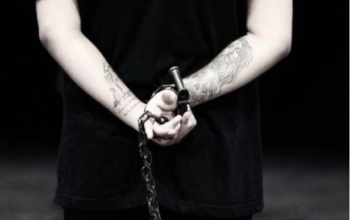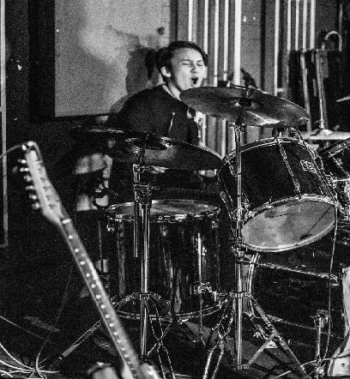The ongoing COVID-19 pandemic has been detrimental to countless industries worldwide, but the arts sector, devastated by restrictions, has sparked conversation, as people are becoming infuriated with the Government’s ‘blasé’ perspective.

Upon the recirculation of a ‘Cyber First’ campaign, angry creatives took to social media to share their outrage.
One advert in particular fuelled the outcry. Photographed was a dancer named Fatima, alongside text that read: “Fatima’s next job could be in cyber. (She just doesn’t know it yet).” A tagline ran underneath: “Rethink. Reskill. Reboot.”
Anna Kedge, a theatre performer in Lincolnshire, said: “I think what the Government have tried to do is make any role in entertainment seem like idle work or a hobby on the side of a career. For many performers, this couldn’t be further from the truth.”
Josh Browne graduated from the University of Lincoln with a 1st class honours degree in Music. He felt saddened by the government’s perception of creative individuals.
“It’s extremely disheartening, really. Creativity has always been frowned upon in society,” he said, “Creative jobs are seen as a dream rather than a tangible goal.”

“Arts degrees are mocked, being called Micky Mouse degrees, and the actions and remarks made by the Government solidify those remarks in the sense that there is no genuine support for creative individuals to nourish their talents,” he added.
According to The Telegraph, a report conducted in August by the Office for National Statistics shows 45% of people in the arts industry have been furloughed.
Although the Government is overlooking the industry, a report from the Department for Digital, Culture, Media & Sport calculated an estimated Gross Value Added of £32.03billion in 2018. Film, television, radio and photography, also counted in the creative industries, contributed an overall £111.7billion during the same period.
Asher Hoang, a second-year Music student, said: “Music has always been a vessel for political messages, meaning it has always been censored. There are always going to be instances of censorship from the Government because music is the easiest way to spread the message.”

A struggling arts sector also means a struggle for jobs. Catt Leadbeater graduated from the University of Lincoln during the pandemic and has found it difficult to break into the fashion industry.
“Graduating during lockdown has made it impossible to follow my dreams as a milliner [hat maker], as all events are pretty much cancelled,” she said, “I think that not providing money to help save the arts is a mistake on the Government’s front.”
As the nation stays indoors as much as possible, it’s become more reliant on the arts than ever.
“Lockdown has only emphasised our relationship with the arts,” said James Barry, a third-year Drama student. “Whether it be through the medium of books, written by authors, or television and film, created by writers, acted by actors and directed by directors; it has been a safe place for many citizens of the U.K. and will continue to be so.”
He added that “theatre and literature have acted as windows into society”. “Without that, we run the risk of losing huge parts of history, only documented through mediums such as poetry, prose and drama.”
As an industry of creatives experience various hardships during the COVID-19 pandemic with little support from the Government, artistic organisations have attempted to unite, lending a hand to millions of disheartened individuals.
“To lose our creatives and our dreamers is to lose a vital part of human life, as well as culture,” Josh Browne said.

